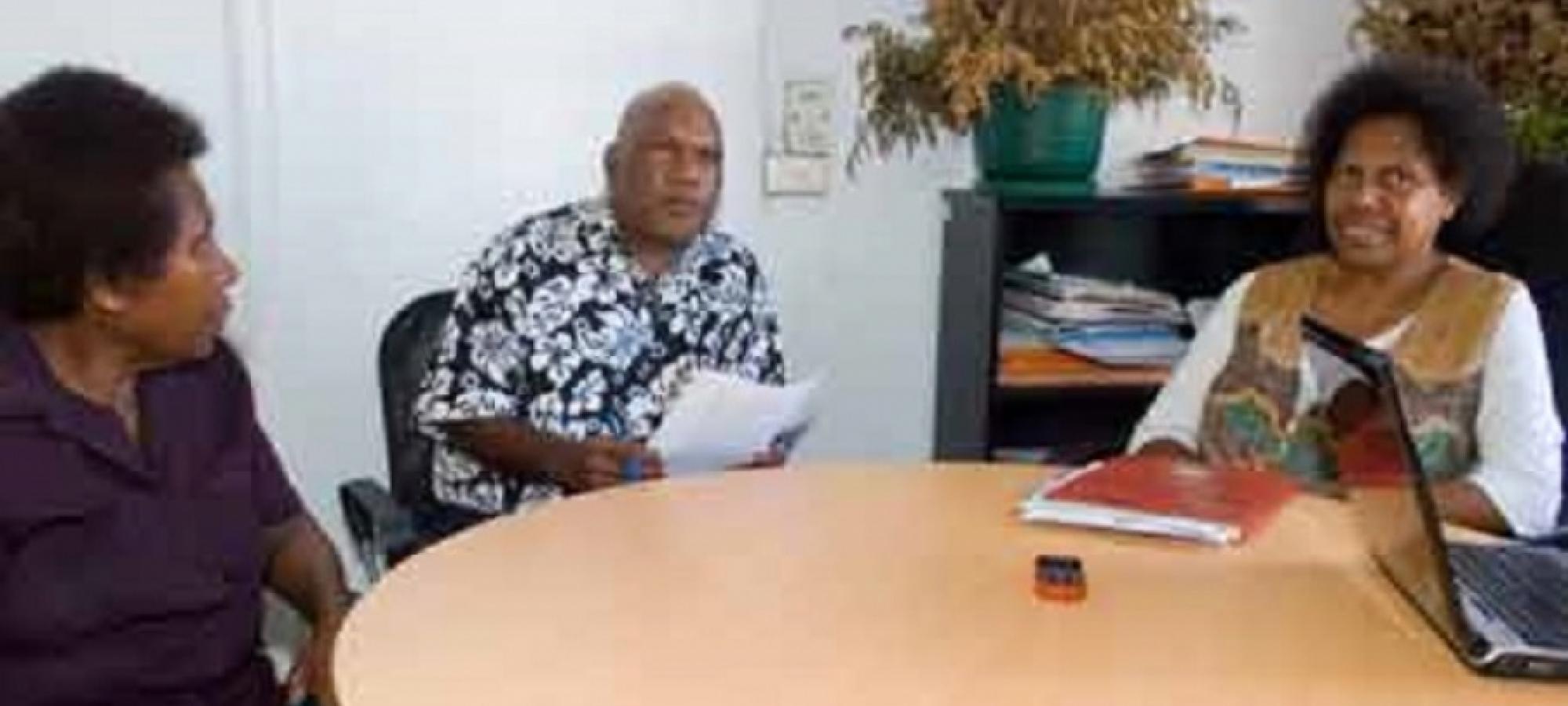Dame Carol Kidu challenges Pacific Parliamentarians

Friday 20 July 2012, Secretariat of the Pacific Community (SPC), Brisbane, Australia –
Dame Carol Kidu, former Leader of the Opposition in Papua New Guinea stated that, "Pacific countries are fighting issues of commonality such as climate change and violence against women despite the diversity of culture and language in the region".
Dame Kidu's remarks opened the Regional Human Rights Consultation for Members of Parliament held in Brisbane this week.
Dame Kidu shared the challenges she encountered in implementing human rights approaches as a PNG parliamentarian and emphasised that legislative reform especially in human rights related issues demanded courage of the parliamentarians and sensitising of one's constituency of the relevant human rights issue.
She posed the following critical question to parliamentarians in attendance, "Why are we defaulting on our social justice contracts and yet we are not defaulting on our economic contracts?"
Dame Kidu highlighted that, "globalisation poses a greater threat to the region than colonisation and therefore it is imperative that human rights standards are adhered to."
She relayed her experience as the former PNG Minister of Community Development in which she was instrumental in lobbying for the ratification of the Convention on the Rights of the Child; adding that national ownership of such international treaties is vital.
Members of Parliament from the Cook Islands, Federated States of Micronesia, Kiribati, Niue, PNG, Samoa, Solomon Islands, Tuvalu and Vanuatu are being exposed to critical human rights issues facing the Pacific region such as: climate change, sexual and gender based violence, national and regional human rights commissions, HIV and inclusivity of persons with disabilities at the 4th Pacific Consultation on Advancing Legislative Reform in Brisbane, Queensland, Australia.
The consultation is aimed at providing an opportunity for Pacific Parliamentarians to gain further information on, and discuss current and critical human rights issues in their national parliaments.
The week long consultation ended with a mock parliament in which regional Parliamentarians raised and debated human rights issues.
The consultation is currently underway at the Park Regis North Quay Hotel in Brisbane, Queensland, Australia from 16 to 20 July 2012.
The annual consultation is facilitated by the SPC RRRT team in collaboration with the Pacific Islands Forum Secretariat and in partnership with UN Women and the Asia Pacific Forum for National Human Rights Institutions.
The consultation is made possible thanks to the generous funding of AusAID.
For more information, contact Lionel Aingimea ([email protected])









